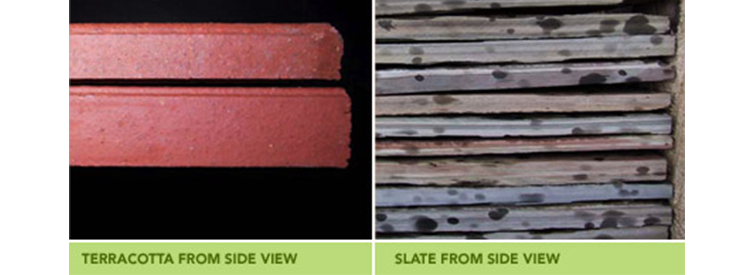
If the tiles that have been delivered for your project are different thicknesses, but have been delivered as the same tile or series or batch, there is something wrong.
Tiles that are produced from any one batch will always be of uniform thickness.
Marble and granite will be machined and rectified into tile size pieces and can be expected to be consistent in thickness.
With some quarried product like slate, however, there will be a variation in thickness between each tile. That is because slate and stone is split from larger slabs. Your tiler will sort the slate by thickness before he lays it.
• A variation in the thickness of each piece of slate is normal and part of the way it is quarried. The slate is usually sorted into different thickness tiles. The tiling commences with the thick tiles first, and the thinner ones are built up to the level of the thick ones with the adhesive.
• If the glazed, porcelain, or terracotta tiles you have are different thicknesses it is probably because they are actually different tiles. They may be from two manufacturers or two plants each making a different type of tile. Never expect tiles that are sold as being the same tile or series to vary in thickness.
There is nothing wrong with mixing tiles of varying colours, textures, sizes, or thickness on a project.
As long as each tile is suited for the purpose used, thickness is just another variation. Make sure that your tiler is aware that he will have to allow for the difference in the process of tiling.
The tiler may need to change adhesives on your project to one that is suitable to be built up thicker than standard.
If the tiler has laid the tiles without allowing for the variation in thickness, there will be definite steps in the floor or wall. This is not really acceptable and the tiling will need to be repaired or replaced.